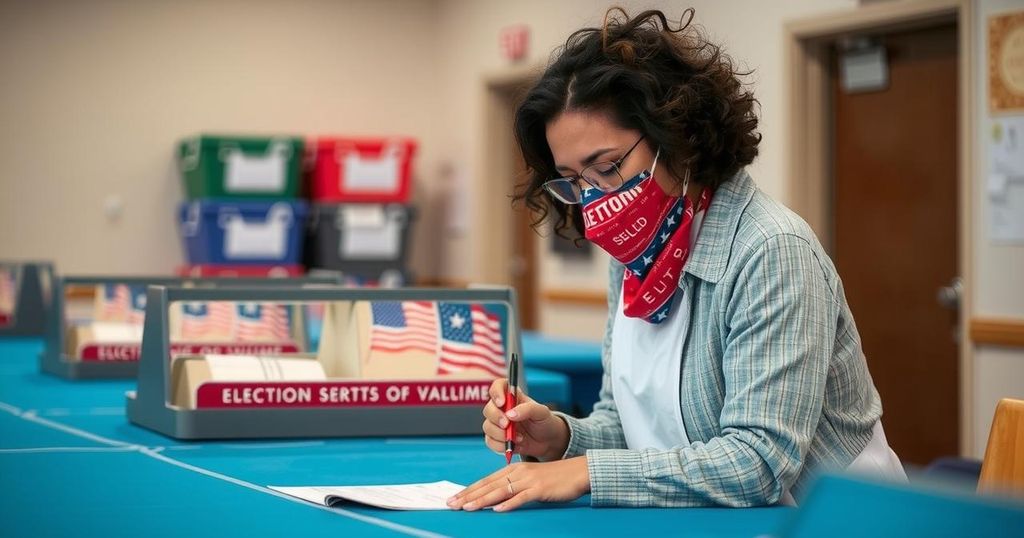Ongoing Challenges in Pennsylvania’s Election Process Amid Reform Demands

Despite a successful 2024 election, Pennsylvania’s electoral process faces ongoing challenges, particularly in terms of staffing and the need for legislative reforms. Tim Benyo, the Chief Clerk of Elections in Lehigh County, calls for changes to enhance election efficiency, including extending deadlines for mail-in ballots and improving voter registration processes. Political gridlock continues to prevent these improvements, impacting the long-term viability of election administration in the state.
Allentown, Pennsylvania, has witnessed a relatively smooth electoral process for the 2024 elections, yet underlying issues in the election framework persist. Tim Benyo, the Chief Clerk of Elections in Lehigh County, highlights systemic problems that have yet to be addressed. Despite the success of this election cycle, calls for reforms in the Pennsylvania election code remain unmet due to political gridlock and competing agendas among lawmakers.
Benyo emphasizes the need for adjustments such as extended pre-canvassing for mail-in ballots and an earlier voter registration deadline, both of which would alleviate the burden on election officials and improve operational efficiency. The ramifications of inaction are concerning; experienced election administrators are leaving, forcing less experienced personnel into crucial roles, thereby heightening the risk of significant errors during elections. “I don’t know how long it’s sustainable on the human side of it,” Benyo remarked concerning this precarious situation.
Pennsylvania’s recent legislative efforts have been overwhelmingly focused on providing financial support to enhance election infrastructure in the wake of the 2020 election challenges, but Benyo argues that financial resources alone are insufficient. His team endured considerable overtime in the lead-up to the recent elections, culminating in 80-hour work weeks that he describes as unsustainable.
Demand for over-the-counter ballots surged this year, resulting in protracted wait times for voters, exacerbated by slowdowns in the state’s voter database, SURE. Such delays not only inconvenienced voters but also led to heightened tensions at polling locations as some individuals became frustrated over procedural changes.
Looking forward to 2025, the landscape appears uncertain due to partisan divides that hinder the passage of vital election reforms. Although there may be potential for compromise, particularly involving voter ID requirements, past experiences suggest that legislative stalemates are likely. As Benyo and his team continue to grapple with these challenges, he remains hopeful for reforms that allow for more efficient operations and a less strenuous electoral process.
The events surrounding Pennsylvania’s election procedures are rooted in longstanding requests for updates to the state’s election code, which officials argue have become critical for maintaining operational efficacy. The state has previously faced scrutiny over its electoral processes, particularly highlighted during the controversial 2020 elections. In the context of persistent political tensions, discussions about necessary reforms are often stalled, impacting the efficiency of election administration and the experience of both workers and voters.
In conclusion, while the 2024 election in Pennsylvania was conducted without major issues, deep-seated challenges within the electoral framework remain. Tim Benyo’s insights reveal a pressing need for legislative reforms to bolster election operations, yet political divisions continue to impede progress. As Pennsylvania prepares for future elections, the hope for lasting solutions hinges on overcoming partisan gridlock to ensure a more sustainable and efficient voting process.
Original Source: www.lehighvalleynews.com





